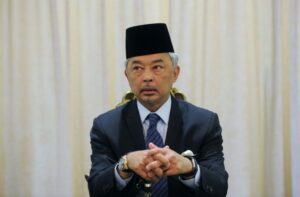KUALA LUMPUR, Aug 1 — The reduction of the United States’ (US) reciprocal tariff could enhance the overall cost competitiveness of Malaysian-manufactured goods in the US market and serve as an important signal of improved bilateral trade relations.
The Federation of Malaysian Manufacturing (FMM) president Tan Sri Soh Thian Lai viewed this decision as a timely and strategic move, particularly in the current global trade environment.
“Although the six-percentage point reduction may seem modest, it is significant for industry players, especially for sectors operating on thin margins or those competing in price-sensitive global supply chains.
“While some may argue that the impact on Malaysian exporters could be limited because US importers bear the tariff cost, FMM believes that the burden of tariffs is often shared across the supply chain,” he said in a statement today.
US President Donald Trump today signed an executive order that modifies the reciprocal tariff rate for dozens of countries, including Malaysia — initially at 25 per cent, then down to 19 per cent — ahead of his self-imposed Aug 1 trade deal deadline.
The new tariff enforcement date will be on Aug 8, Investment, Trade and Industry Minister Tengku Datuk Seri Zafrul Abdul Aziz announced on Friday.
According to Soh, a reduction in tariffs benefits not only Malaysian exporters but also US importers as it improves the overall cost equation and can stimulate demand for Malaysian goods, especially in sectors where price plays a crucial role in purchasing decisions.
“The tariff revision marks a meaningful step toward fostering more balanced and mutually beneficial trade relations between Malaysia and the US.
“It is expected to support export growth, improve market access and further strengthen the longstanding economic ties between both countries,” he added.
In addition, FMM anticipated that several export-oriented industries, including electrical and electronics, machinery and equipment, rubber-based products and processed industrial goods, may benefit from improved competitiveness and increased demand.
“FMM expects that any changes in export volumes in the short term may be gradual. While some front-loading of orders may have occurred earlier, the tariff cut is likely to encourage more exporters to consider taking on new orders going forward.
“Manufacturers are mindful of the current volatility in global markets, including ongoing supply chain disruptions, and they are expected to factor these considerations into their planning and responses to future shifts in market demand,” Soh noted. — Bernama






